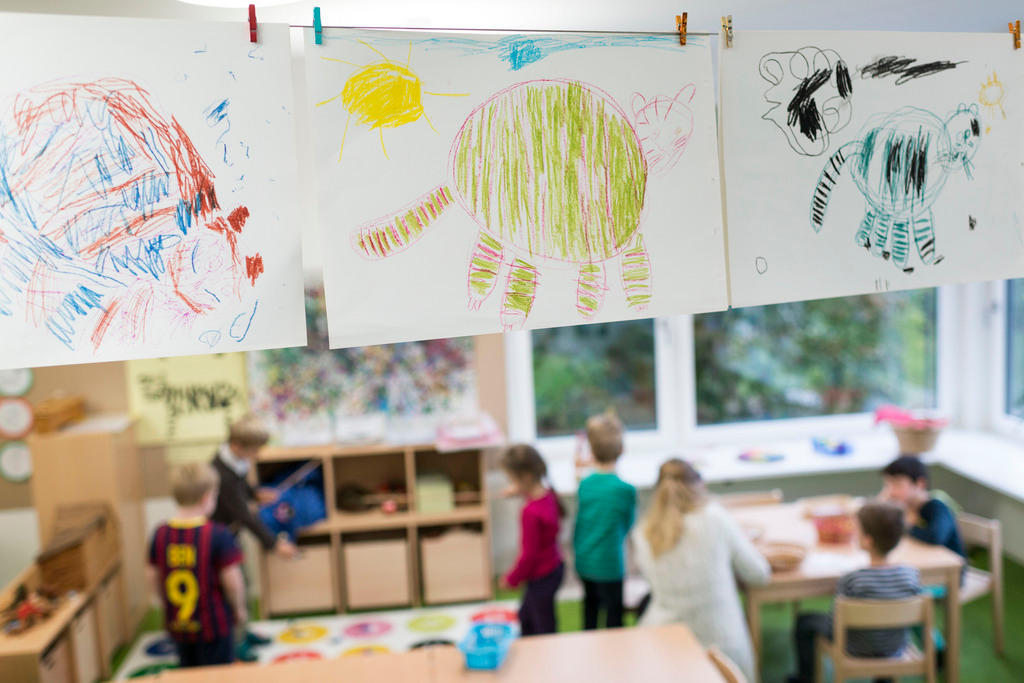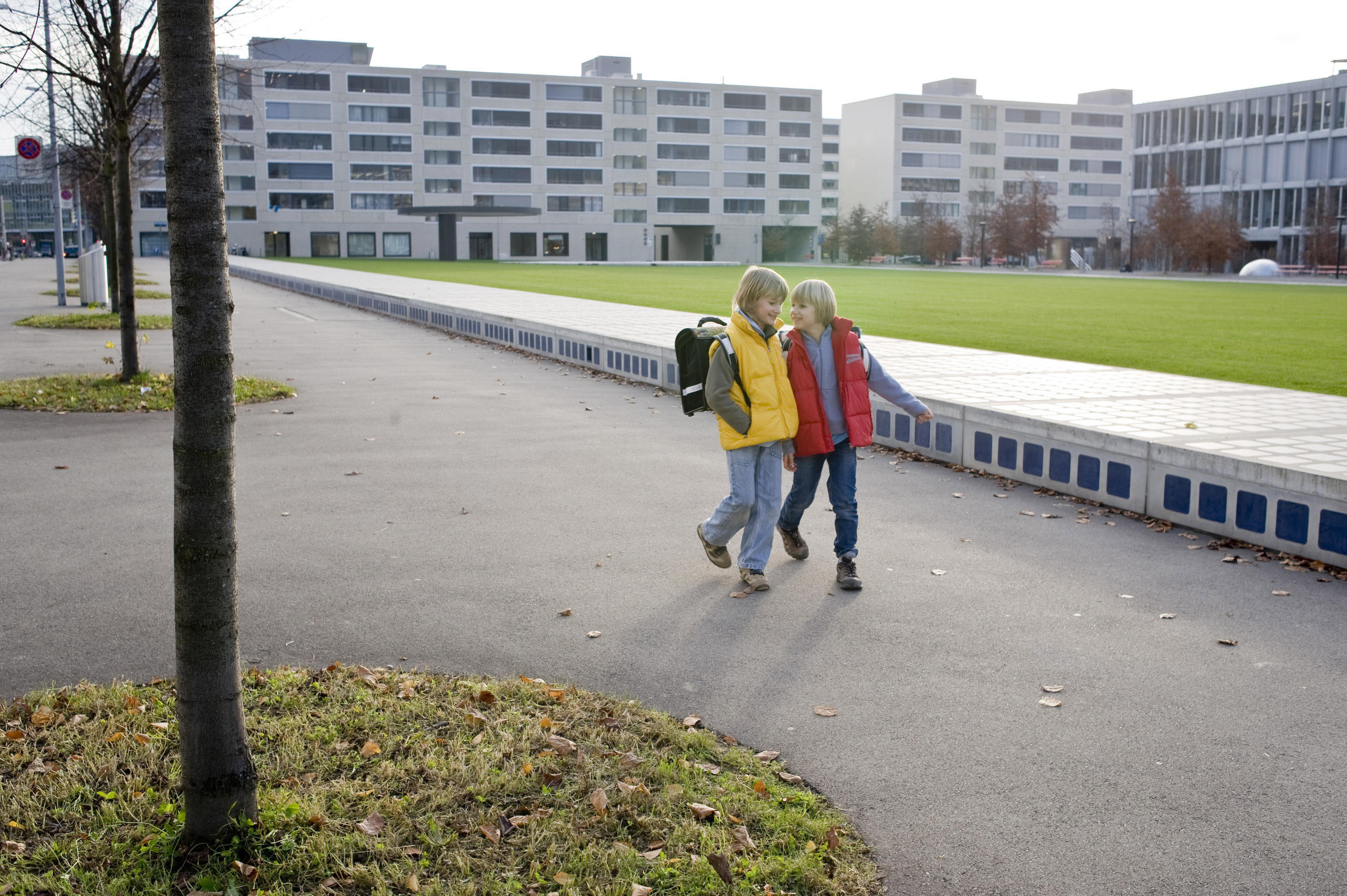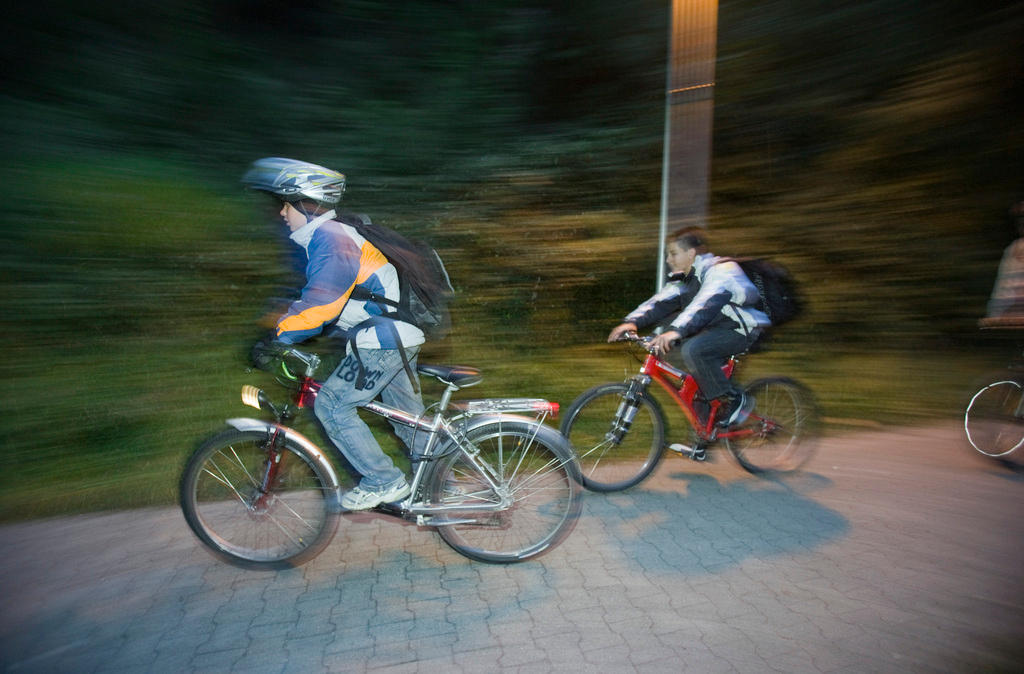More parents delay kindergarten start date

Swiss parents are increasingly putting off the start date of kindergarten for their children in a clear push back against efforts to make enrollment mandatory by age four across the nation.
Primary level education in Switzerland covers eight yearsExternal link beginning with two years of kindergarten or what is known as the first learning cycle. The cantons decide when the children start, between age four and five. If a child has reached the required age by a cut-off date (between early April and late July in 24 cantons), they can start at the beginning of the next school year, which is late summer in Switzerland.
In only a few German cantonsExternal link is Kindergarten not compulsory or is only compulsory for one year.
According to HarmosExternal link – which aims to harmonise school systems across Switzerland – the cut-off date for reaching the kindergarten age of four will be fixed at July 31 for those cantons which have signed up by 2020. This means some cantons have been progressively moving forward their dates to meet this deadline. Seventeen cantons already use July 31.
+ More on Harmos and school curricula here
Too young?
But the later date means some children will be just four when they start kindergarten. Concerned parents have the option to ask their local education authority if their children can start later. This is already happening, according to a report in the freesheet 20 Minutes.External link
In one part of German-speaking Switzerland – cantons Solothurn and Bern – 10% of children have been starting kindergarten later. Six years ago, it was just 2% for Solothurn. In Bern, parents do not even have to make the official request. In Zurich, parents are also choosing to delay, education officials report.
“Studies show it is much easier for children who really are school ready,” Christian Hugi from the Zurich Teachers’ Association told 20 Minutes.
Experts say that children cope with starting kindergarten in different ways, but some may not yet be able to go to the toilet on their own or still find it extremely difficult to be separated from their parents. Some younger ones get tired very quickly or find groups daunting. This requires extra attention from the teacher. A good start in kindergarten is key for development, they say.
But some experts say some parents also find kindergarten hard. “Letting go is certainly a theme that keeps coming up. Parents are giving the responsibility for the care of their most precious thing to someone else,” Erwin Sommer from the education department in canton Bern told 20 Minutes.
There are also parents who prefer to send their children to kindergarten early, especially if they only miss the cut-off date by a matter of weeks.
International comparison
The right age to start schooling is also a topic in other countries. In neighbouring France, for example, children will start school by the age of three, under reforms announced by President Emmanuel Macron for September 2019. This is one of the lowest compulsory school starting ages in Europe, but it will affect only a small number of children because most children start nursery (pre-school) at this age in France anyway. The move is intended to reduce inequality in education, Macron said.
In Germany and Italy, the start is at age six, whereas England, Scotland and Wales have opted for age five.
In Finland and Estonia, which scored high in the latest OECD PISAExternal link comparison on student performance, pupils start obligatory school when they are seven, but will usually have been to nursery beforehand.
Ticino exception
In Italian-speaking TicinoExternal link, kindergarten runs between the ages of three and six, but starting at three is not obligatory.External link

In compliance with the JTI standards
More: SWI swissinfo.ch certified by the Journalism Trust Initiative












You can find an overview of ongoing debates with our journalists here . Please join us!
If you want to start a conversation about a topic raised in this article or want to report factual errors, email us at english@swissinfo.ch.